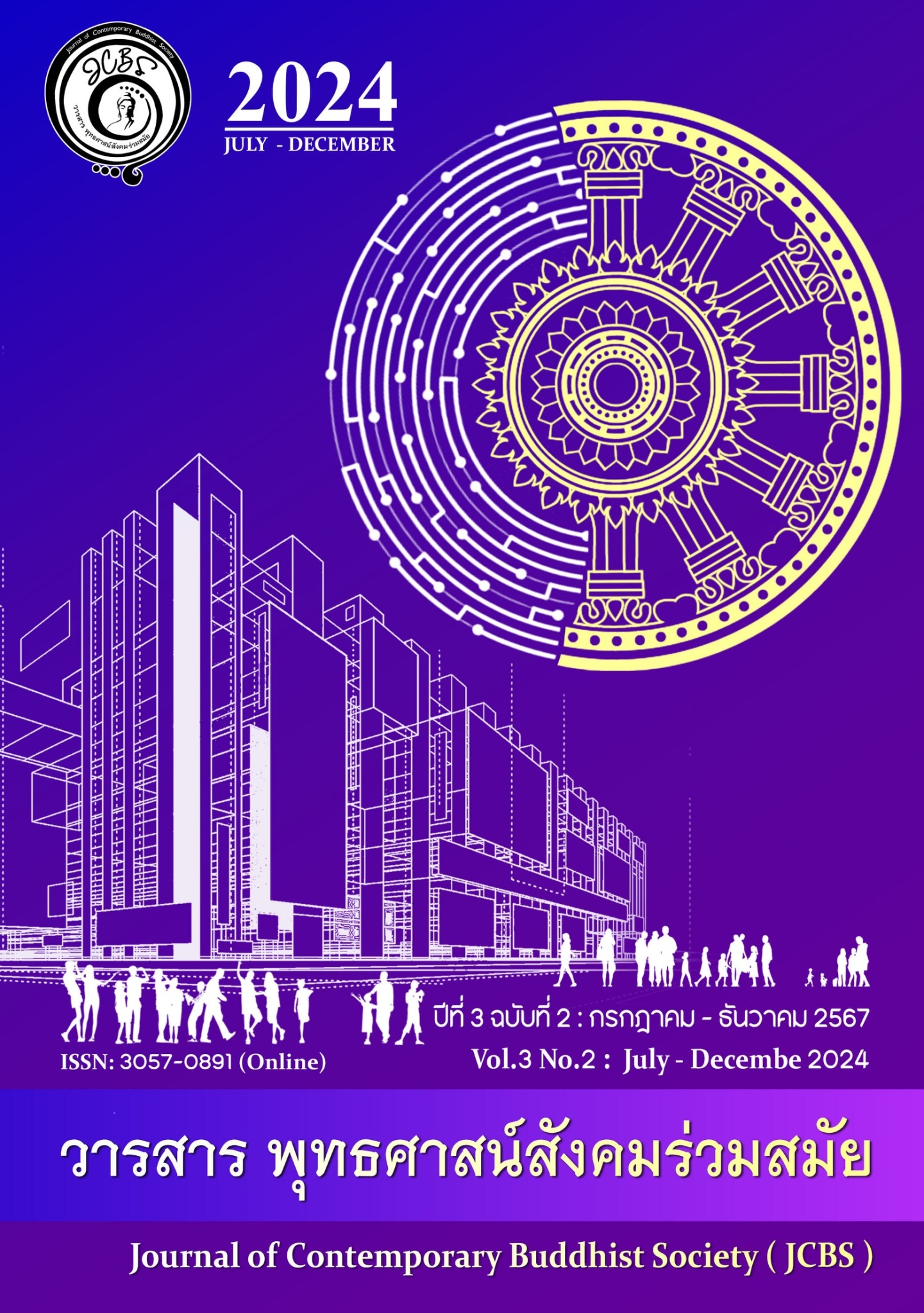Buddhist methods for organizing thoughts and controlling anger
Keywords:
Angry, Idea, RegulationAbstract
Suppressing or extinguishing anger is It relies on the principles used to correct the obsession in Buddhism by applying the principle of wisdom 3, consisting of 1. 2. Wisdom comes from learning, wisdom is derived from wisdom, wisdom is derived from prathososa, wisdom is derived from the practice of asceticism, wisdom is derived from the practice of asceticism, wisdom is derived from the first two wisdoms and then the wisdom in the dharma, the next order follows the 8th mantra, so the fruit and nirvana are final, which have the following 6 characteristics as follows: 1. Kammaskta Sammatikthi is wisdom that sees that animals have their own karma. Good karma will get good results. Evil deeds have evil consequences. 2. Samadhi is wisdom that comes from calming the mind and staying firmly in one emotion. 3. Vipassana Samadhi is the wisdom that comes from vipassana growth. Consider this image-name, body-mind, this is a triad, i.e., omnipotence, anatta 4. There is nirvana as an emotion. Passion can be executed decisively. 5. The fruit is wisdom in the fruit of nirvana. 6. Individualism is the wisdom that arises after the mortal way. Nirvana Mental Effect Passion The rest of the passions (except arhats) are emotions. Once the anger is eliminated. After that, organize your thoughts to live in a normal and happy society, the statute of life is the rules and practices about life in the Dharma principles. It is also a practice that a person should do, for the life that a person should do, for a happy life and an orderly and peaceful society.
References
พระพรหมคุณาภรณ์ (ป.อ. ปยุตฺโต). พจนานุกรมพุทธศาสตร์ ฉบับประมวลธรรม. กรุงเทพมหานคร: สำนักพิมพ์มหาจุฬาลงกรณราชวิทยาลัย, ๒๕๔๖.
มหาจุฬาลงกรณราชวิทยาลัย. พระไตรปิฎกภาษาบาลี ฉบับมหาจุฬาเตปิฏกํ ๒๕๐๐. กรุงเทพมหานคร: โรงพิมพ์มหาจุฬาลงกรณราชวิทยาลัย, ๒๕๓๕.
________. พระไตรปิฎกภาษาไทย ฉบับมหาจุฬาลงกรณราชวิทยาลัย. กรุงเทพมหานคร:
โรงพิมพ์มหาจุฬาลงกรณราชวิทยาลัย, ๒๕๓๙.
สมเด็จพระพุทธโฆษาจารย์ (ป.อ.ปยุตฺโต). จะพัฒนาคนกันได้อย่างไร?, (ม.ป.ป.).
Downloads
Published
How to Cite
Issue
Section
License
Copyright (c) 2024 Journal of Contemporary Buddhist Society = JCBS

This work is licensed under a Creative Commons Attribution-NonCommercial-NoDerivatives 4.0 International License.





